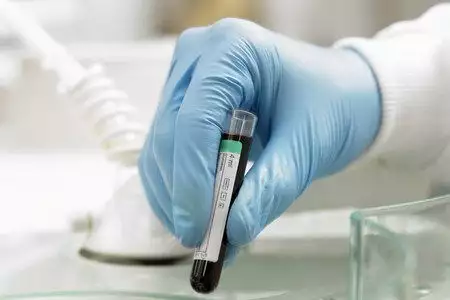Today, psychiatry uses additional methods in addition to observation, physical examination and psychological examination, which mainly allow the exclusion of organic brain damage.
An increase in the density of brain tissue is observed in the case of proliferative processes, while a decrease is observed in nonproliferative processes. CT images of the brain also allow accurate measurements of fluid spaces and calculation of relevant brain indices. In schizophrenia and aphentric disorder, dilatation of the lateral ventricles and, in schizophrenia itself, additional cerebral atrophic changes are found.
MRI
This is an examination technique that is based on the registration of a computer-processed magnetic resonance image of changes in the nuclei of the test substance. This examination has even greater imaging selectivity than CT. MR gives the possibility not only to image existing changes in the examined structure, but also to determine the time of their formation.

photo: ojoimages
In addition, dynamic changes within the brain that are only present intermittently can be visualised. In patients with schizophrenia, MR imaging shows a reduction in the volume of the frontal lobes, cerebellum and thinning of the corpus callosum. In affective disorders, changes are described in the frontal and temporal lobes.
Laboratory tests-neuroendocrine, immunological and endocrine
Neuroendocrine studies
Neuroendocrine studies involve administering a substance, usually a drug of some kind, that increases or blocks synaptic transmission in a specific system and studying the effect of the secretion of a specific hormone. Some of these substances increase or decrease the amount of amines in the synaptic space, while others may specifically bind to a specific postsynaptic receptor blocking it. An example of such a test is the determination of the amount of somatotropin following administration of the relevant drug. In patients with depressive syndromes, somatotropin secretion is impaired.
Hormone tests
Studies of hormone levels and their diurnal fluctuations are mainly used in cases of depression. A significant increase in cortisol levels is observed and there are no clear differences in cortisol levels between morning and evening hours.
Immunological studies
The use of immunological tests mainly concerns depressive syndromes and schizophrenia. In depressive syndromes, an increase in acute phase proteins, some cytokines and a decrease in lymphocyte activity are described.
The onset of schizophrenia is often associated with the presence of a bacterial or viral infection and is accompanied by immune activation with an increase in the production of pro-inflammatory cytokines.









